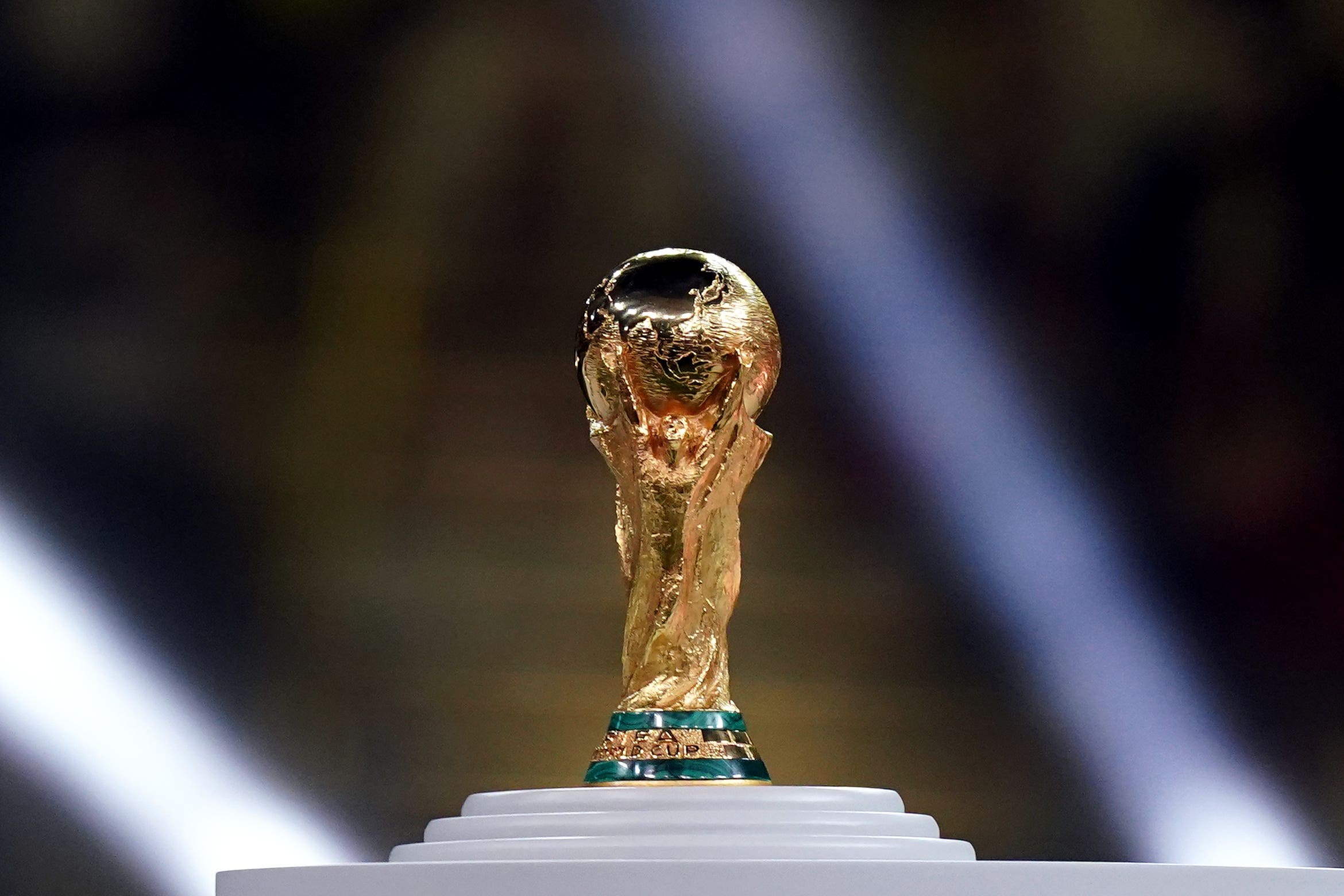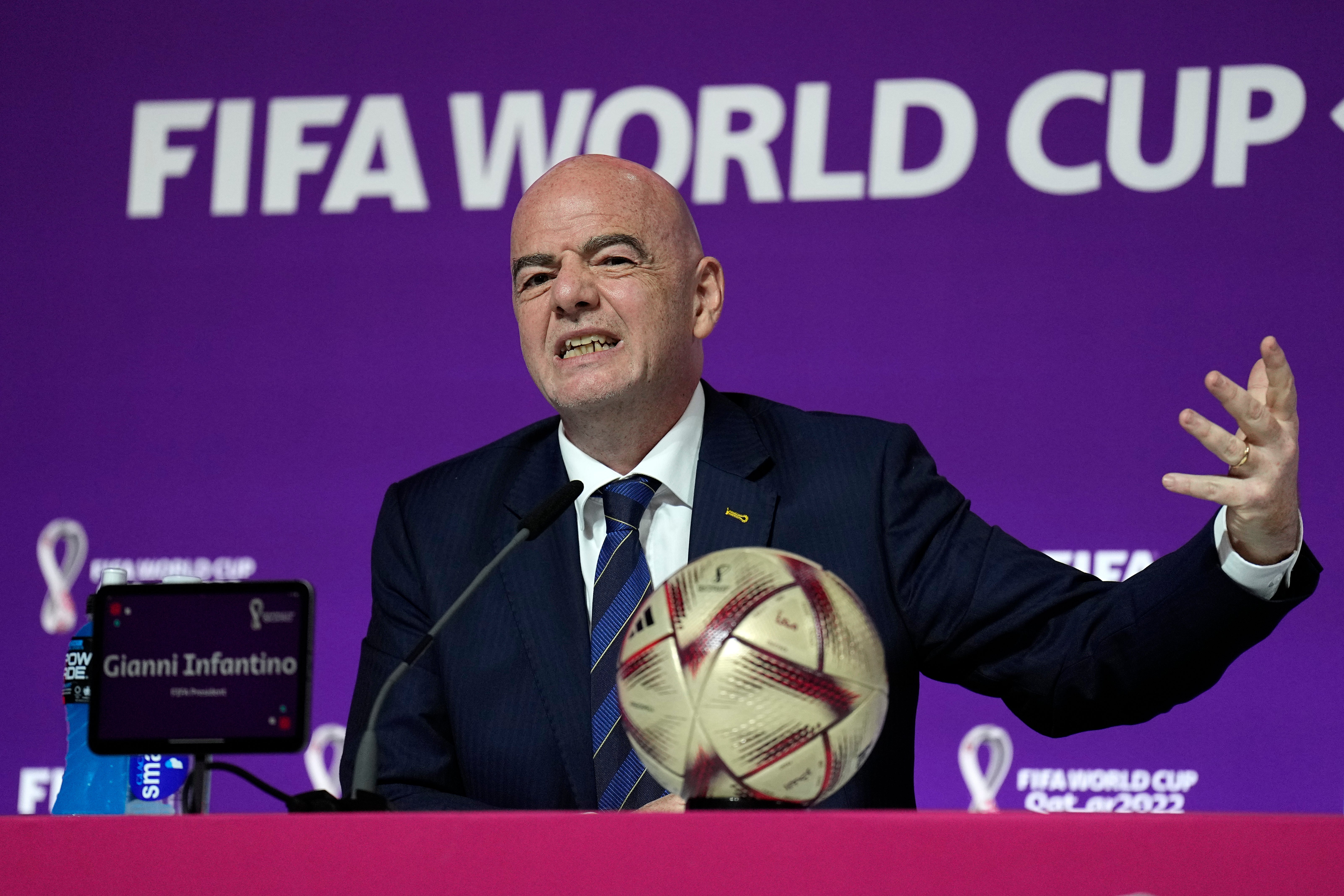More, more, more? Why World Cup’s greedy expansion is the last thing football needs
A bloated 2026 World Cup shows why football desperately needs an independent regulator to do Fifa’s job of caring for the global game, writes Miguel Delaney


Your support helps us to tell the story
From reproductive rights to climate change to Big Tech, The Independent is on the ground when the story is developing. Whether it's investigating the financials of Elon Musk's pro-Trump PAC or producing our latest documentary, 'The A Word', which shines a light on the American women fighting for reproductive rights, we know how important it is to parse out the facts from the messaging.
At such a critical moment in US history, we need reporters on the ground. Your donation allows us to keep sending journalists to speak to both sides of the story.
The Independent is trusted by Americans across the entire political spectrum. And unlike many other quality news outlets, we choose not to lock Americans out of our reporting and analysis with paywalls. We believe quality journalism should be available to everyone, paid for by those who can afford it.
Your support makes all the difference.As a major part of the football calendar finally becomes clear, it only raises more questions about the rest of it – and where the sport is headed.
The World Cup is to go to a preposterous 104 games and a full 40 days, taking up more time, more energy. How long until we’re getting close to the Ashes in terms of duration?
There still isn’t any sign of “give” in a calendar that just keeps getting more and more congested. That start date in 2026 will mark the culmination of a decade that has seen almost endless expansion, bringing a bigger World Cup, a bigger European Championship, a bigger Champions League and an extra continental competition in the Europa Conference League. Even the two years still to go will almost certainly bring a greatly increased Club World Cup, adding a total of over 200 extra games – and so many more required match days – to the elite end of the calendar.
The immediate concern here is rightfully over player fatigue, and Fifa - for their part - did discuss a task force on player welfare that would include provisions on mandatory rest periods and rest days per week. There is also something deeper, though, that runs to what the sport is supposed to be about.
Is “more” the only answer to everything? Does that actually serve football? Is anyone even thinking about this? The calendar is already looking so bloated, the cleanness and clarity of competition being compromised, the necessary symmetry of tournaments being greedily seared.
You only have to consider the last World Cup, despite the controversy of its hosting. The tournament has a terrifically self-contained quality, with the insulated nature of the event firing a brilliant intensity. That alone played a large part in one of the greatest ever football stories, which was Lionel Messi being so driven to lift the trophy. He knew it was a month to deliver immortality. It is an element that elevates a World Cup and makes it unique. It is also something that is only so sustainable, an energy that dissipates the longer a tournament goes on. For that, you only have to look at the mess of so many Cricket World Cups over the last two decades. Supporters start to lose interest by the end.
What sums all of this up is how it took the staging of the World Cup for Fifa to go back on plans to get rid of four-team groups. That was despite supporters and people within football loudly pointing this out for years. They weren’t listened to. The reality of the matches for some reason had to be rewatched, as if it wasn’t obvious.
It made it seem like these decisions were being taken by people who hadn’t actually considered any of this or – worse – hadn’t actually watched it before.
That isn’t as frivolous a complaint as it might initially seem.
One of the biggest issues in football right now is that there is no individual body that is overlooking and attempting to forecast the wider health of the game.
This is of course supposed to be Fifa’s idealistic role, with the continental and then national federations feeding into that.

Instead, Fifa and Uefa are currently at war, with the calendar itself a battleground. If you go down to the national associations, then, a telling example is how the Football Association is set to be essentially transposed in England by a new independent regulator. Spain meanwhile sees La Liga and the national federation in a similar battle to Fifa and Uefa. It is like this at almost every level of the game, and was illustrated in the aftermath of Covid and the attempt to adapt so many postponements.
No one ever wants to give anything up. Everyone has their need, and it is usually financial.
The vested interests of the game’s power structures means the only solution ever proposed to anything is expansion
This is the source of the tension between Fifa and Uefa, which is why there is a growing argument the current structures are not fit for purpose. They are supposed to be regulatory bodies but both are now almost singularly driven by the resources that come from their own competitions. This is what the fight over the calendar is about. The Champions League has become the most lucrative event in football, to the point the big clubs feel they deserve even more of it, and Fifa want their own version of it.
That in itself reflects how all of this is then exacerbated by the various cynical interests seeking to financially or politically exploit football’s immense cultural power, from nation states and sovereign wealth funds to private equity and other extreme expressions of capitalism.
Why would people seek to reduce or constrain the calendar when more matches mean more money?
Who cares about anything else?
Well, we should, and so should those who are supposed to be overseeing the game.
Really, we are at the point where the whole sport needs an independent regulator, let alone England. How can the best interests of football be served when Fifa and Uefa are in competition and mostly concerned with their own interests?
It is like the game needs an independent panel that sits between all of this, has no vested interests in any existing competitions, and is insulated from influences like states and capitalism.
Again, yes, this is supposed to be Fifa.
Instead, Fifa is being driven by an administrator who himself sought to politically maximise the largest split in the game, which is that between the western powers and the global south. It drove the most vociferous debate at the World Cup, above all the perception and criticism of an autocratic state like Qatar hosting it.
It is also this that has led to the expansion of the competition in the first place. More countries outside Europe want more access to the greatest show in the game – and all of its wealth.
It should be acknowledged that there is actually some merit in this. It is damaging the sport that so much of its wealth is concentrated in western Europe. More of the game’s immense resources should obviously be redistributed.
It’s just that endless expansion isn’t the answer to this. It actually has the opposite effect, only increasing financial gaps. What happens is that the whole is made greater, but those at the top still get the greater proportion, so those at the bottom only get a bit more of a much larger amount. The gaps grow larger, making worse problems like competitive balance. This has been the modern history of football. The vested interests of the game’s power structures mean the only solution ever proposed to anything is expansion, but it doesn’t actually increase value – except to those looking to make capital out of it.
The tragic irony is that – and these words are used with great resentment – “the product is being diluted”.
It is why the need for a panel to actually think about this and look at the game holistically has never been greater.
The only increase that is actually required is in thought and foresight.
With everything else, more has very much been less.

Join our commenting forum
Join thought-provoking conversations, follow other Independent readers and see their replies
Comments